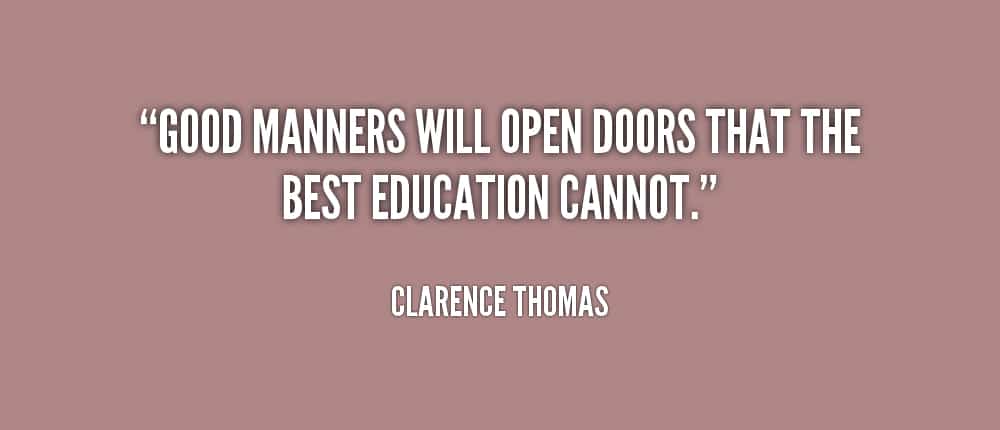The ultimate guide to business etiquette and professionalism at work:
As the global marketplace expands and technology capabilities increase, the need to be more aware of how behaviors impact others is especially important.
Simply because people are busy juggling priorities, responding to daily pressures, and conducting business across time zones and continents, common courtesy sometimes falls through the cracks.
Both words and behaviors matter in the workplace. The Golden Rule says, “Do unto others as you would have them do unto you.”
In other words, think about how you want to be treated by others who communicate and interact with you.
Respect, courtesy, integrity, fairness, compassion and appreciation are universal values and principles that go a long way to creating a pleasant environment and a healthy corporate culture.

Looking for examples? Consider these common opportunities to show your business etiquette:
1) Do you turn your cell phone off when you’re involved in individual conversations or business meetings?
At the very least, put your phone on silent or vibrate and do not respond until you’ve concluded your current activity, even if it’s just having coffee with a friend, co-worker or customer.
2) Are you careful about what you post on social media sites?
Remember, the whole world can see, and you don’t want to give people a reason to think or talk in a disparaging way about you or question your reputation.
3) Are you sensitive to differences in international cultures?
For example, While not true in the United States, in Japan it is important to get to know one another before beginning a business conversation.
4) Have you always acknowledged others?
A simple “thank-you” (whether verbal or in the form of a hand-written note) goes a long way in making other people feel important and appreciated.
5) Are you respectful of opinions and ideas that are not consistent with yours?
It is important to know how and when to express differences and work toward consensus.
6) Are you punctual?
While this is not as important in some cultures as in the United States, it’s just courteous to let people know if you will be late for a conference call, meeting or other event. It is equally important to let others know if you cannot honor your commitments to submit work deliverables on time.
7) Do you respond to business requests in a timely manner?
It’s not always possible to stop what you’re doing to take on a new project or help a colleague, but getting back to them with an answer is crucial. For example, “John, I’m involved in a priority project now, but I’ll respond to your request within 48 hours.”
8) Do you introduce yourself and the reason for your call to people you contact by phone?
Don’t assume that a person knows or remembers who you are. Always ask if it’s a good time to talk or if would be better to call at another time. The corollary is: do you return calls in a timely manner… especially if your outgoing voice mail message states that you will
9) Make your email messages, letters and other business communications represent you well?
Take the extra time to make sure they are well-constructed, professional and error free.
The truth is, good business etiquettes makes you stand out from the crowd. They speak volumes about you, your character and your professionalism.





